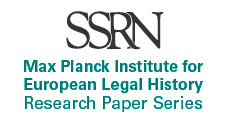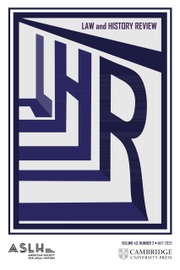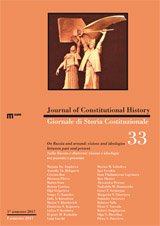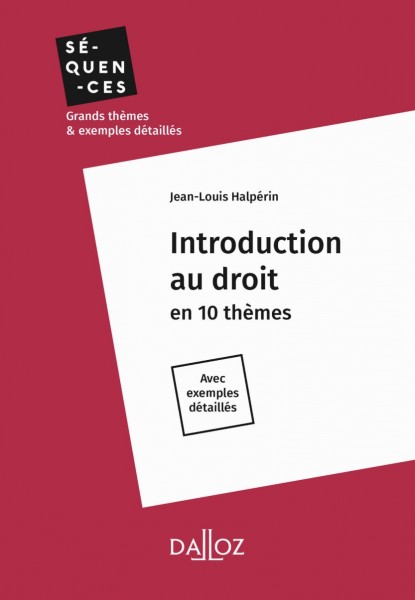A call for papers has been announced at H-Announce for a conference on "The Paris Peace Conference and the Challenge of a New World Order", to be held in Paris in June 2019.
Type:
Call for Papers
Date:
September 26, 2017 to June 1,
2018
Location:
France
Subject Fields:
Colonial and Post-Colonial History /
Studies, Diplomacy and International Relations, Nationalism History / Studies,
Women's & Gender History / Studies, World History / Studies
The Peace Conference held in Paris in the
aftermath of the Great War remains among the most important yet also most
controversial events in modern history. Although it is often considered to have
made a second global war all but inevitable, it has also been praised for
providing the basis for an enduring peace that was squandered recklessly by
poor international leadership during the 1930s.
A major international conference will take
place in Paris in June 2019 to commemorate the centenary of the 1919 Conference
from a global perspective. The purpose of this event is to re-examine the
history of the Peace Conference through a thematic focus on the different
approaches to order in world politics in the aftermath of the First World War.
A remarkably wide range of actors in Paris - from political leaders, soldiers
and diplomats to colonial nationalist envoys and trade unionists, economists,
women's associations and ordinary citizens - produced a wide array of proposals
for a future international and, indeed, global order. These proposals were
often based on vastly different understandings of world politics. They went
beyond the articulation of specific national security interests to make claims
about the construction and maintenance of peace and the need for new norms and
new institutions to achieve this aim. To what extent the treaties and their
subsequent implementation represented a coherent world order remains a question
of debate.
By 'order', we mean in the first instance,
the articulation and development of systematic ideas, institutions and
practices aimed at promoting a durable peace that would deliver security,
economic recovery and social justice. This distinguishes thinking about 'order'
from discussions of 'national interests' - though there was of course overlap
between these two modes of thinking about future international relations.
Second, we are interested in 'order' as an analytical concept in its own right.
This encourages historians to identify, as Paul Schroeder has argued, the
shared rules, assumptions and understandings about a particular set of
political relations and to show how specific decisions reflect the norms of the
order.
Emphasising the preoccupation of
peace-makers with the problem of world order broadens the scope of the familiar
questions and debates that have dominated the literature on the Peace
Conference. It also opens the way for posing new questions and for thinking
about more familiar questions in new ways. We therefore invite papers addressing the following questions:
- What were different conceptions of political, economic and social order advocated at the Paris Conference? What was the relationship between different ideas about the international order, such as a system based on national self-determination and one based on the rule of law? Were there broad over-arching conceptions of an international order, such as liberal and socialist internationalism, that could accommodate more narrowly focused ideas such as free trade or labour rights? How did people conceive of the relationships between self-interest and order? What role did power politics play in conceptions of international order? Were the absentees from Paris - notably the Germans and the Bolsheviks - able to shape the debate about the emerging international order?
- What were the origins of these different ideas about order? Why
was there such an interest in the systematic development of particular
orders both during and after the war? Who produced ideas about order, and
why? What was in particular the role of NGOs and ordinary citizens? Can an
approache based on different 'generations' of international actors
illuminate this problem in new ways? Was the idea of 'order' a reaction to
international politics before and during the war? Or did it represent a
continuity with certain strands of thinking about international politics
that pre-dated the outbreak of war in 1914? What was the relationship
between the articulation of war aims and ideas about post-war order?
- To what extent did contending visions of an international order
shape the peace treaties? Did the organization and proceedings of the
Conference reflect tensions between the national, the regional and the
global? What was the role of regional orders in shaping broader
conceptions of a new world order? To what extent did discourses concerning
new regional orders reflect fundamental changes in the conceptualization
of world politics? To what extent were they a repackaging of the more
familiar themes of empire or spheres of influence?
- How were the peace treaties legitimated to domestic and
international audiences? Were subsequent negotiations on the
implementation and revision of the peace treaties shaped by the profound
debates about international politics that took place before and during the
Peace Conference? Were conceptions of international order systematically
subordinated to concerns about national security? Conversely, to what
extent can it be argued that the Paris Peace Conference produced or
contributed to a disorder in European politics that led
ultimately to the Second World War?
- What was the impact of the Paris Peace Conference on views of
world order based on gender, class and race? How did women, workers and
colonial subjects respond to the peace conference and what was its impact
on the emergence of alternative voices in international affairs? Whose
voices were heard at Paris in 1919 and whose remained silent or were
silenced?
- What political and diplomatic practices were implied in these
various conceptions of international order? To what extent did these
practices shape the course of international relations in 1919? Did the
intellectual debate and political experience of the Paris Peace Conference
play a role in shaping a future generation of leaders (such as Jean Monnet
and John Foster Dulles)?
Paper proposals
The conference organisers aim to ensure the
conference provides a global perspective on the Paris Peace Conference. We are
therefore particularly keen to receive proposals from scholars working on
topics pertaining to the non-western world.
The conference languages will be English
and French
Regardless of language, all proposals will
receive serious consideration.
The deadline for proposals is: 1 June
2018
Please send your proposal (abstract in
English or French of no more than 500 words) and short CV to Axel Dröber: ADroeber@dhi-paris.fr.
Conference Steering Committee
Laurence Badel (Université de Paris I Panthéon-Sorbonne)
Eckart Conze (Philipps-Universität Margurg)
Norman Ingram (Concordia University)
Peter Jackson (University of Glasgow)
Stefan Martens (Deutsches Historisches Institut, Paris)
Matthias Schulz (Université de Genève)
William Mulligan (University College Dublin)
Comité scientifique
Andrew Barros (Université de Québec à Montréal)
Carl Bouchard (Université de Montréal)
Eric Bussière (LABEX EHNE)
Michael Clinton (Gwynedd Mercy University)
Olivier Compagnon (Paris III - Sorbonne Nouvelle)
Beatrice de Graaf (Utrecht)
Vincent Dujardin (Université catholique de Louvain)
Olivier Forcade (Université de Paris - Sorbonne)
Erik Goldstein (Boston University)
Jean-Michel Guieu (Université de Paris I -
Panthéon-Sorbonne)
Talbot Imlay (Université Laval)
Stanislas Jeannesson (Université de Nantes)
John Keiger (Cambridge
University)
William Keylor (Boston University)
Antoine Marès (Université de Paris I - Panthéon-Sorbonne)
Holger Nehring (University of Stirling)
Jennifer Siegel (The Ohio State University)
Glenda Sluga (University
of Sydney)
Georges-Henri Soutou (Collège de France)
Christian Tams (University of Glasgow)
Hugues Tertrais (Commission of History of International Relations - ICHS)
Martin Thomas (University of Exeter)
Antonio Varsori (University of Padua)
Hirotake Watanabe (Tokyo University of Foreign Studies)
Xu Guoqi (University of Hong Kong)

















